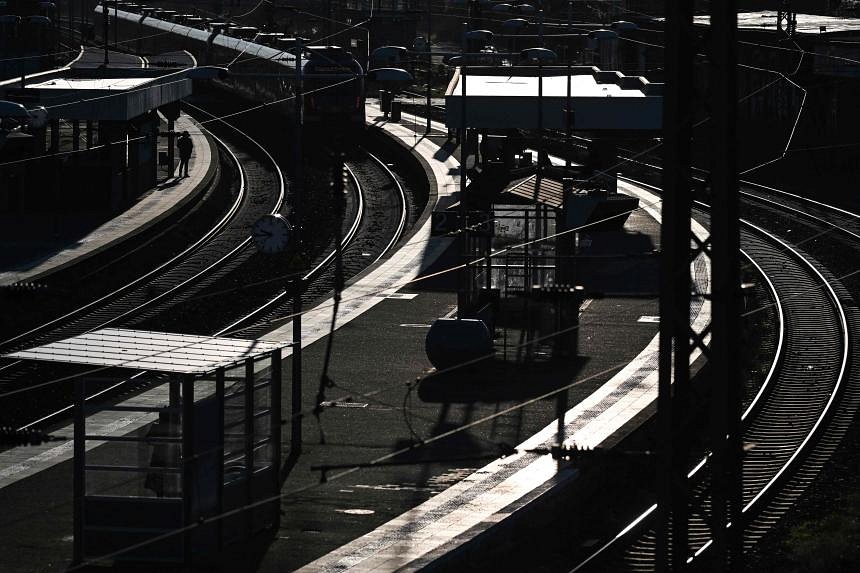BERLIN - Hundreds of thousands of people faced train cancellations across Germany from Jan 10, as a three-day nationwide rail strike added to travel chaos in Europe’s largest economy, where farmers’ protests have blocked highways and snarled traffic.
The strikes, called by the GDL train drivers’ union from Jan 10 to Jan 12 evening, have forced national rail operator Deutsche Bahn to run only stripped-back emergency timetables.
One in five long-distance high-speed rail services were running and regional services have been “massively thinned out”, a Deutsche Bahn spokesperson told reporters at Berlin’s central station, empty of its usual crowds.
At Cologne railway station in western Germany, commuters wrapped up against freezing temperatures checked departure boards for timetable changes.
After Mr Ulrich Linke’s first train failed to show up, he said he would hang around to see if the next one appears. “I’ll wait for three-quarters of an hour at minus seven degrees here in the main station,” he told Reuters.
“It’s sad when you work in healthcare,” said commuter Alex Mueller. “We work in a retirement home, and we have to get to work.”
The head of German farmers’ association DBV vowed to ramp up protests on Jan 10, after convoys of tractors and trucks blocked roads across the country earlier this week.
The strikes and protests add to pressure on Chancellor Olaf Scholz’s coalition government, which faces growing economic problems, including weak macroeconomic data, high interest rates and a budget mess.
The long-running row over train drivers’ pay and working hours flared up again following a three-week truce over Christmas, and after an effort by Deutsche Bahn to block the latest strikes with a court injunction did not succeed.
The GDL is seeking a reduced working week for its shift workers, from 38 to 35 hours, on current wages.
Deutsche Bahn has offered flexibility on working hours but refused to reduce them without a pay cut.
The train operator argues that the union’s demands would lead to a 50 per cent hike in staffing costs, partly because it would have to hire more workers as Germany faces a skilled labour shortage.
“We are prepared to make compromises and gradually reduce the weekly working hours so that the employer side also has the opportunity to train staff,” GDL boss Claus Weselsky told the ZDF public broadcaster.
“If we get nothing by Friday, we’ll take a break then enter the next round of industrial action,” he added.
Cargo train drivers are also striking until Jan 12 leading to supply chain concerns, with almost one-fifth of German freight traffic transported via railway. REUTERS

